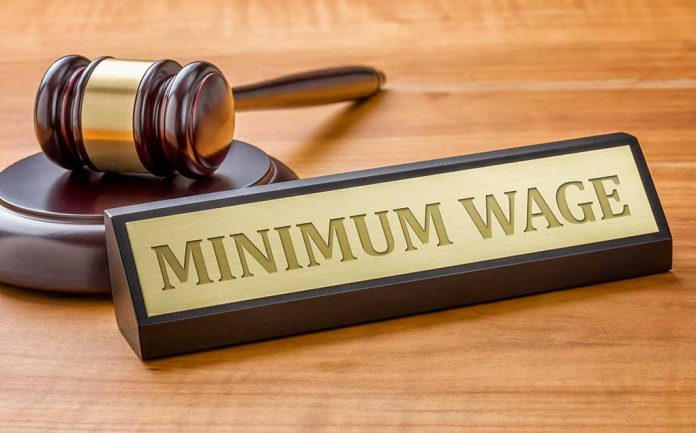
The Michigan Supreme Court has clarified that the state’s minimum wage will increase to $12.48 in February.
At a Glance
- The new minimum wage will rise to about $15 an hour by 2028.
- Tipped wage is set to reach 100% of the regular minimum wage by 2030.
- Labor unions and restaurant industry officials have expressed opposing views.
- Annual wage increases will be adjusted by the rate of inflation after 2028.
Michigan Supreme Court Ruling on Minimum Wage
The Michigan Supreme Court clarified that the state’s minimum wage will increase to $12.48 on Feb. 21, 2025. This decision stems from a request made by the Attorney General, seeking clarification on a previous ruling from July 31. The July ruling contained a clerical error regarding new minimum wage and paid sick leave laws originating from a 2018 petition drive. This clarification sets the stage for incremental annual increases, eventually reaching $14.97 an hour by 2028. The state treasurer must finalize the exact minimum wage figures by Nov. 1 each year.
The ruling also specifies how the lower tipped minimum wage will increase in the coming years. In 2025, the tipped minimum wage will hit 48% of the regular minimum wage. It will then reach 60% in 2026, 70% in 2027, 80% in 2028, 90% in 2029, and 100% in 2030.
Severs and bartenders opposed to a raise in the minimum wage for tipped workers rallied Wednesday afternoon outside the Michigan capitol building: https://t.co/58wzp933ZC
— WOOD TV8 (@WOODTV) September 18, 2024
Impact and Response
The change has garnered various reactions across different stakeholders. Restaurant server and bartender communities have expressed significant concerns, fearing that eliminating the tipped minimum wage system could harm their earnings. Specifically, the tipped wage will be aligned with the regular minimum wage by 2030. Some tipped workers worry that this change will reduce the actual amounts they take home, as customers might stop tipping if base wages increase substantially.
“Restaurant owners and servers are rightfully worried about the devastating toll this court ruling is set to take on their livelihoods,” argued Sen. Thomas Albert, R-Lowell. He further stated that “many restaurants and small businesses will not survive the economic blow that will be caused by this ruling — thousands of people are on the verge of losing their jobs, and inflation-weary customers will face even higher costs.”
Critics also rallied, including an estimated 600 servers and bartenders in Lansing, advocating for the preservation of the existing tipped wage scale. They voiced concerns that abolishing the tipping system may significantly impact their income. Moreover, business leaders have echoed these sentiments, with restaurant industry officials fearing higher costs and potential job losses arising from the wage adjustment.
Support and Legislative Actions
Despite the opposition, labor unions have shown strong support for the minimum wage increases. They released a letter urging lawmakers to “stand firm in these worker gains and reject any efforts to obstruct or undermine them.” This sentiment reflects a broader push for improved wages and working conditions for Michigan’s workforce.
Beyond wage increases, the ruling also covers paid sick time requirements effective from Feb. 21, 2025. Employers with fewer than 10 employees must grant up to 40 hours of paid sick time annually, while those with 10 or more must allow up to 72 hours. The Michigan Department of Labor and Economic Opportunity will oversee the implementation of these adjustments.
Sources
- High court affirms Michigan’s plan to increase minimum wage to $12.48 in February
- As Michigan moves toward $15 minimum wage, workers rally to keep tip system
- Supreme court clarifies adopt and amend decision — plus other updates on paid leave, minimum wage

















